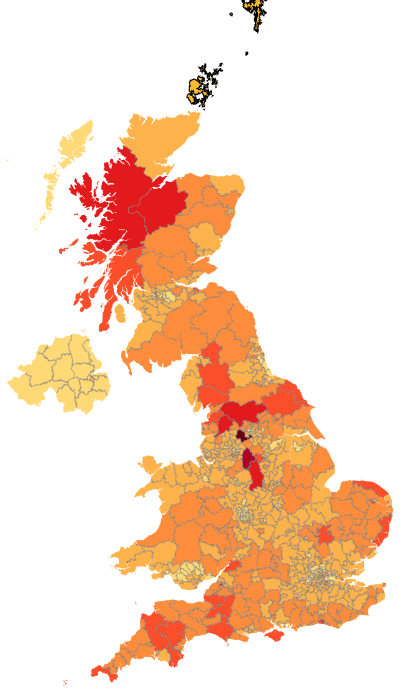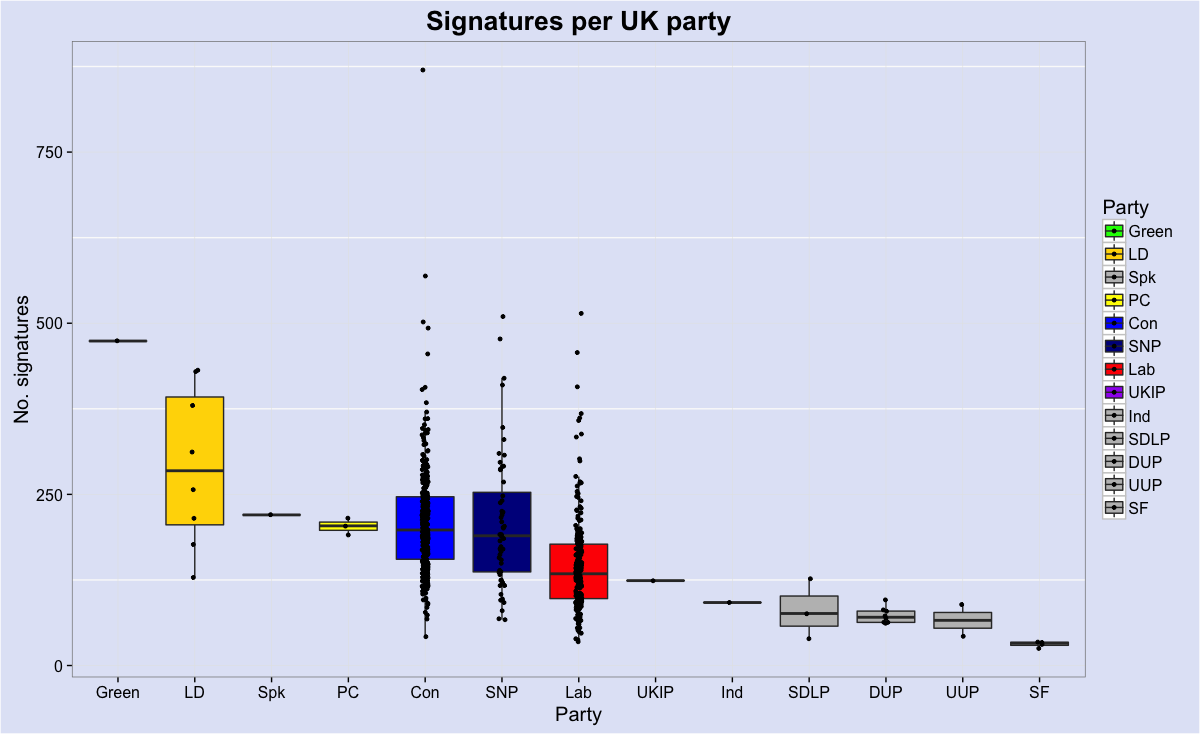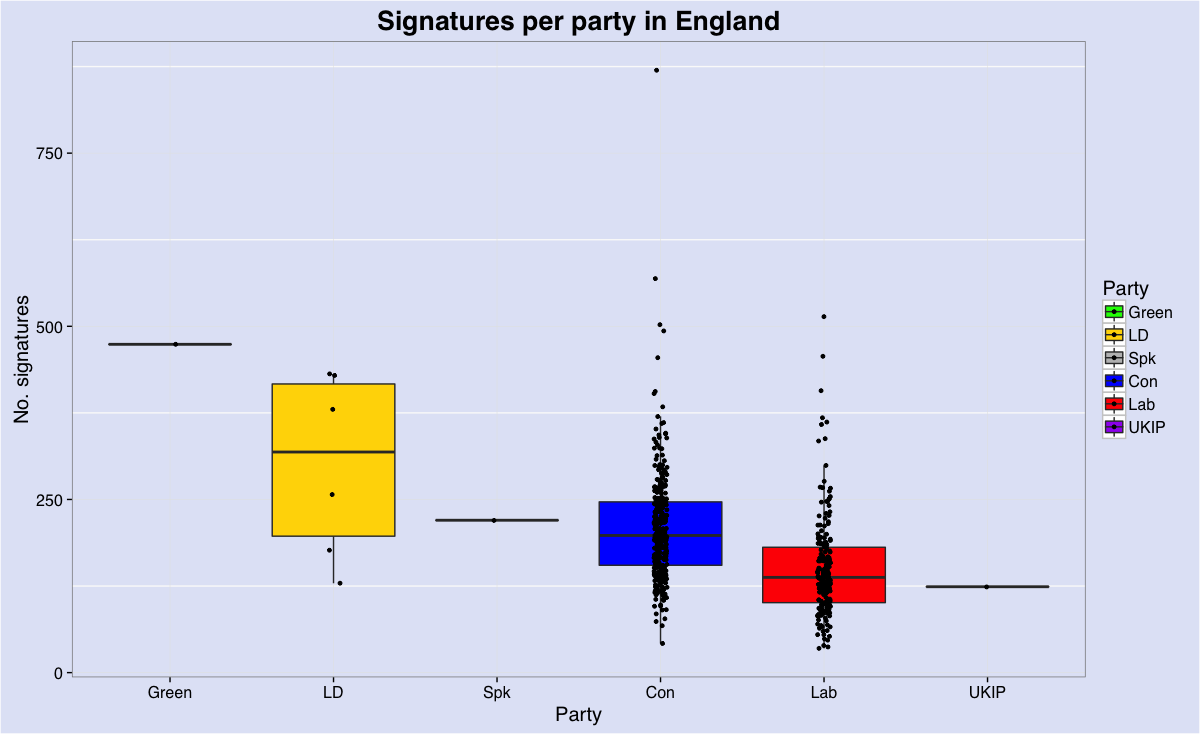 123,076 of us signed the e-petition to ban driven grouse shooting.
123,076 of us signed the e-petition to ban driven grouse shooting.
And you only have to glance at the map of signatures to see that the signatures come predominantly from rural constituencies in England, Scotland and Wales. If you have a map of the last general election’s results in your head you can quickly compute that it is Tory seats, and Scottish seats (almost all of which are SNP) which have given this e-petition most support.
But here are a couple of graphs (many thanks to ‘a reader’ of this blog for them) which show the details behind those facts.
First for the UK as a whole:
Clearly, our e-petition didn’t raise that much support from Northern Ireland – hardly surprising when driven grouse shooting is not an issue over there (although I bet the Strangford DUP MP, Jim Shannon, will attend and speak in the debate – maybe he will respond to constituents on this subject by then too?). On the British mainland, it is, unsurprisingly, the Green Party’s single constituency which has the highest average signature count. But then come the Lib Dem constituents, noticeably more enthusiastic than their MPs, followed by the Speaker (a Tory really) and Plaid Cymru in rural Wales. Next come Conservatives and the SNP who are more or less equal in their support. Noticeably lower are Labour constituencies (although, of course, for all we know, it may only be Labour voters in every constituency who have signed the e-petition (though I very much doubt it)).
Let’s just look at English constituencies – from which 100,000 signatures came alone – and we see that we get a similar pattern:
More on this tomorrow.
[registration_form]

So it’s not a class war issue then?
Maybe it should be.
I hope that it is not turned into a class war issue because that would provide ministers with an easy opportunity to dismiss it. The reason why I am in favour of banning driven grouse shooting and not, say, the Henley Regatta, is that DGS is harmful in its own right, in a variety of ways and depends on criminal acts to remain viable.
The fact that the benefits of DGS are enjoyed by a small minority whilst the costs are borne by many more people is a valid argument against it but – to my mind – not the social class of the participants per se.
Splitter.
🙂